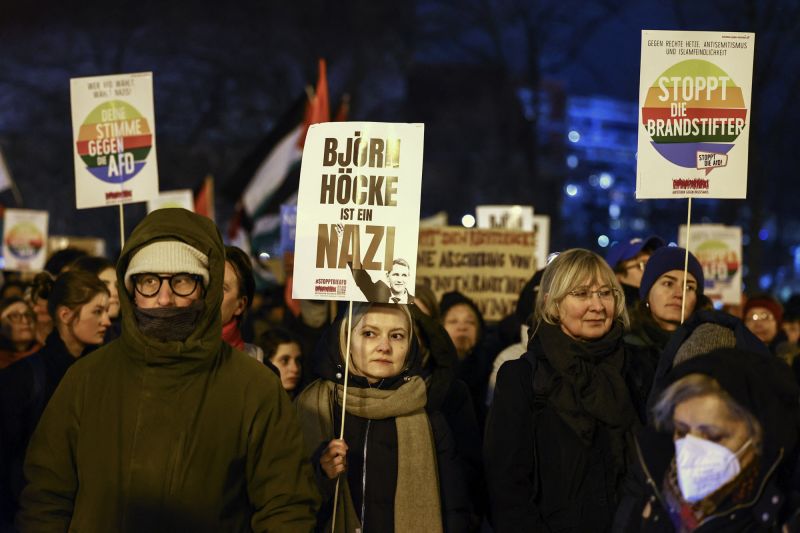As Germany’s Alternative for Deutschland (AfD) party pushes forward with its plan to deport immigrants, the country has seen particularly heated protests across its major cities. This right-wing party, known for its staunch anti-immigration stance, faces fierce opposition from various civil society groups, human rights activists, and other political factions. The uproar has triggered discussions throughout Germany and beyond about the balance of immigration regulation, human rights, and national security.
At the heart of the AfD’s proposal is large-scale deportation of migrants who are seeking asylum or have been denied long-term stay. Labeling this as an urgent measure to protect German culture and maintain control over the country’s borders, the AfD’s proponents argue that Germany’s long-standing stance of welcoming refugees has placed an undue burden on its resources, and that this is unsustainable in the long term.
However, the AfD’s position incites significant controversy. Critics argue that this proposed policy is much more driven by xenophobia and a fear of cultural change than by rational economic or security considerations. Moreover, they point out that deporting migrants en masse could entail significant human rights violations and runs counter to Germany’s obligations under international law. Amnesty International and several other organizations have publicly criticized the AfD’s propositions.
The level and intensity of protests against the AfD’s deportation policy highlight growing societal division in Germany. Protesters argue that the deportation plan sends a discomforting signal to foreigners who have contributed positively to German society, and underscores an intolerant sidestep from multicultural values that many argue are intrinsic to modern Germany.
In cities like Berlin and Hamburg, protests have transformed into organized resistance, with thousands taking to the streets, carrying banners, chanting slogans, and demanding that the government reject the AfD’s proposals. Despite the pandemonium, it’s worth noting that these protests have remained largely peaceful, with the German Police ensuring that law and order prevails.
While Germany’s federal government currently holds a firm stance against mass deportations, the AfD’s growing political influence is undeniable. In recent years, the far-right party has transformed from a fringe group into Germany’s third-largest political party, suggesting a considerable portion of German society has become increasingly apprehensive about immigration.
Whether the AfD’s deportation plan materializes in any form remains uncertain. However, the current situation underscores the delicate balancing act Germany faces, as it seeks to reconcile its historic openness to the displaced with the evolving views of a portion of its populace. Further, it brings to the fore the responsibility of political leaders to not exploit, but address these fears through dialogue and nurturing a sense of unity in diversity.
In the midst of this heated debate, focus must also be given to the migrants themselves. The psychological strain associated with the threat of deportation can have long-lasting effects, exacerbating issues of social integration and hampering potential contribution to the host society. Policies must be guided by a comprehensive understanding of this experience, and aim to mitigate associated stress and uncertainty.
Ultimately, Germany’s handling of this situation will play a pivotal role not just within its own borders, but emit a vivid message to the world about its stand on immigration, human rights, and societal integration. As the AfD’s deportation plan encounters mounting protests, the outcome of this controversy could significantly shape Germany’s national and international identity.




